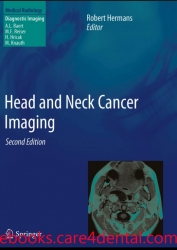Cancer Of The Head And Neck Myers Pdf To Jpg
Eugene Nicholas Myers Born ( 1933-11-27) November 27, 1933 (age 84), Pennsylvania Occupation Doctor and Educator Eugene Nicholas Myers (born November 27, 1933) is an and and a leader in the treatment of head and neck cancer. He has served on the faculty of the since 1972, when he became chairman of the Department of. He is the author or co-author of leading texts in the field of head and neck cancer, and has chaired and served on the boards of the preeminent societies and associations in the field. Pioneer Ddj Sb Virtual Dj 8 Mapping Download.
Contents • • • • • • • • Early life [ ] Eugene Nicholas Myers was born in, Pennsylvania to David and Roslyn Nicholas Myers. His father, maternal grandfather, maternal uncle, and paternal uncles all were doctors. His father was a noted ear, nose and throat specialist in Philadelphia.
Cancer Of The Head And Neck Myers Pdf Printer. Arch Otolaryngol Head Neck Surg. Information about head and neck cancer treatment, prevention, causes.


Education and training [ ] Myers attended the and in 1954 received a Bachelor of Science in Economics. He earned his Doctor of Medicine degree in 1960. After medical school, Myers did internships with Dr. Martin Steinberg at in New York, and with Dr. Byrne at the VA Hospital on Boston. He completed a residency and a Special Fellowship in Otolaryngology at, and then was a Teaching Fellow under Dr. Harold Schuknecht during the 1964-65 period.
He completed his postgraduate training with a Special Fellowship in Head and Neck Surgery with Dr. John Conley at in New York. Career and accomplishments [ ] Myers served two years with the in 1965-67 at the 97th General Hospital in, Germany Myers served from 1968-72 as an Assistant Professor of Clinical Otolaryngology at the in Philadelphia, then became Professor and Chairman of the Department of Otolaryngology at the in 1972. While serving in that leadership position he increased the size and quality of the school’s department of otolaryngology, so that it is widely considered one of the leading programs in the world. Myers was named Distinguished Professor and Emeritus Chair. From 1972 to the present he served first as Professor of Clinical Oncology in the Department of Oral Pathology of the, and then as Professor in the Department of Oral and at that school. He served in various roles including chief of department, consulting staff, active staff, and courtesy staff at a number of major hospitals, including the VA Hospital, University of Pennsylvania Hospital, US Naval Hospital, Children’s Hospital, and Presbyterian-University of Pennsylvania Medical Center, all in Philadelphia, and, Eye and Ear Hospital, UPMC-Presbyterian Hospital,, UPMC-Braddock Medical Center, The Rehabilitation Institute,,, and the Veterans Affairs Medical Center, all in Pittsburgh.
Myers has been a frequent speaker within the US and around the world. He’s delivered over 500 talks before learned medical societies in the U.S. And on six continents between 1964 and 2013, starting with “Management of Otogenic Brain Abscess,' at theNew England Otolaryngological Society, and more recently on “Parapharyngeal Pleomorphic Adenoma” at the 3rd International Congress on Salivary Gland Diseases' in, Switzerland. He’s also moderated over 200 panels during that time. He’s been honored to deliver over 50 eponymous addresses, including the 2nd John Conley Lecture at Columbia University in 1999, and the 1st David Myers Distinguished Lecture (named in memory of Dr. Myers’ father) at the University of Pennsylvania in 2005. Myers has secured multiple research grants by the U.S.
Federal government as well as industry organizations, including the, the, the, the, and the. Publications [ ] Myers is one of the two original editors of Cancer of the Head and Neck, now in its 5th edition, along with Dr.
James Suen (and now co-edited with Dr. Michael Smith, Jeffrey Myers, and Ehab Hanna). Myers also co-edited with Dr. Charles Bluestone, Derald Brackman, and Charles Krause, the twelve volume Advances in Otolaryngology-Head and Neck Surgery.
In addition, he has edited or co-edited books in the field including, Plastic Reconstruction in the Head and Neck, Operative Otolaryngology-Head & Neck Surgery, Tracheotomy: Airway Management, Communication and Swallowing, Decision Making in Ear, Nose & Throat Disorders, Salivary Gland Disorders, Pearls and Pitfalls in Head and Neck Surgery, Practical Tips to Minimize Complications, and the forthcoming Master Techniques in Otolaryngology. He has also contributed almost 150 book chapters to other editors' works. He has authored over 300 refereed articles on a broad range of topics concerning Head and Neck Cancer, Otolaryngology, Oncology, and Maxillofacial Surgery.
• ^ Marquis Who's Who in America, 2007-2011 • ^. Retrieved 2013-11-27. Retrieved 2013-11-27. Retrieved 2013-11-27. Retrieved 2013-11-27.
Retrieved 2013-11-27. The Laryngoscope. Retrieved 2013-11-27. Retrieved 2013-11-27. Retrieved 2013-11-27. Retrieved 2013-11-27. Retrieved 2013-11-27.
Retrieved 2003-12-09.
Head and neck cancer includes cancers of the,, sinuses,,, and lymph nodes in the neck. Most begin in the moist tissues that line the mouth, nose, and throat. Symptoms include • A lump or sore that does not heal • A sore throat that does not go away • Trouble swallowing • A change or hoarseness in the voice Head and neck cancers are twice as common in men. Using tobacco or alcohol increases your risk.
In fact, around 75 percent of head and neck cancers are linked to tobacco use, including and. Infection with is a risk factor for some head and neck cancers.
To diagnose head and neck cancer, your doctor will do a physical exam and diagnostic tests. You will have a biopsy, where a sample of tissue is taken out and examined under a microscope. It is the only test that can tell for sure if you have cancer. If found early, these cancers are often curable.
Treatments may include surgery, radiation therapy, chemotherapy, or a combination. Treatments can affect eating, speaking or even breathing, so patients may need rehabilitation. NIH: National Cancer Institute.